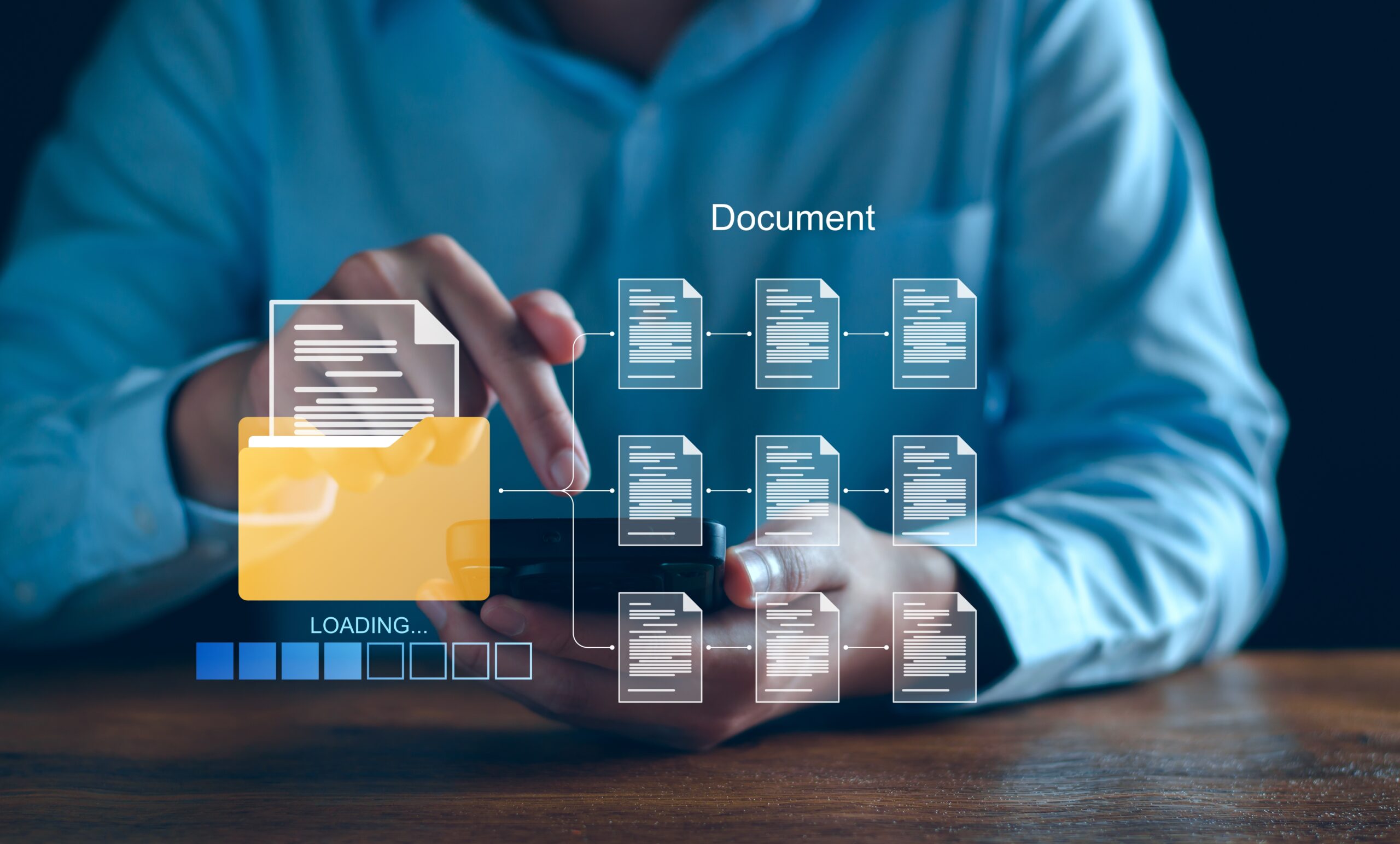What is Enterprise Content Management (ECM)?
According to Forrester, Enterprise Content Management (ECM) is “a set of strategies and technologies that help information workers find, use, and analyze digital information, from any place, at any time, within the guardrails of corporate policies.”
Content management practices have evolved over the years as new and innovative forms of content are introduced to professional work environments. In this blog, I’ll walk you through the key trends in content management, the benefits of a modern enterprise content management platform, and considerations for selecting an ideal ECM software.
A Glimpse into the Technology Trends in Enterprise Content Management
The content management market is evolving to meet the changing business needs. While many content management practices have lost relevance, several technology trends are rising. This is primarily due to the below challenges:
- Lack of Governance: Enterprises are unable to get their leaders, technical experts, and compliance managers on the same page in terms of prioritizing information and its security
- Poor Compliance: As data security and privacy are gaining prominence across the globe, enterprises need content services management software that helps them stay compliant
- Content Migration from Older Systems: While enterprises are focusing on accelerating workflows and modernizing systems, on-premises systems are becoming a bottleneck as it is hard to develop applications on top of them
Such challenges can severely impact an enterprise’s performance and hamper its ability to stay competitive and accelerate its modernization journey. To move past such roadblocks and be future-ready, enterprises must adapt to the following technological trends:
Artificial Intelligence and Machine Learning
Businesses are adopting artificial intelligence and machine learning at a rapid pace, and these technologies will penetrate content services. By leveraging these technologies, organizations can ensure cost-effective automation and facilitate functions such as invoice processing, data extraction, and advanced pattern recognition to enable smart, auto-indexing of content across repositories. Enterprises can also leverage analytics to provide more personalized and intelligent recommendations to customers, such as what books someone should buy next.
Cloud-ready Enterprise
Many enterprises found it more challenging to cope with pandemic-led disruptions than others due to their legacy systems. As we advance, building resiliency will be an important goal for enterprises to stay future-ready. For achieving this goal, a cloud-based enterprise content management system can be the perfect solution. With cloud capability, enterprises can build a foundation for facilitating remote or hybrid work environments. Cloud can enable anytime, anywhere operations and help enterprises stay resilient.
The Emergence of “Content Microprocess”
A content microprocess can be defined as a small, internal workflow in a user journey that prompts enterprises to reach out to external stakeholders like new customers, partners, or suppliers to obtain some information. Digital signatures and requests for information are examples of content microprocesses. Enterprises can connect their external stakeholders with essential internal workflows using content microprocesses.
Knowledge Management
There has been a resurgence of knowledge management, and enterprise content will play a crucial role here. As intellectual property and related practices are under the spotlight, knowledge management will be an area worth comprehending. Modern content services can aid knowledge management by facilitating controlled access to information.
Document Management
Today we are witnessing new ways of content creation, authoring, and organization. So, it’s much easier to reassemble and reuse it. Also, new forms of content are emerging at a brisk rate, like social media, video/audio, etc. As the nature of documents itself is changing, enterprises need to relook their document management systems.
Modern Enterprise Content Management Holds the Key
Adopting modern content management practices is key to staying relevant with the above trends. Traditional enterprise content management was limited to organizing and extracting information. However modern methods can help enterprises dive deeper into their systems and spot areas of improvement.
If enterprises wish to stay future-ready and aptly respond to market changes, they must leverage modern enterprise content management software. It can help them streamline their back-office operations and deliver a fantastic customer experience.

Key Benefits of Embracing a Modern Enterprise Content Management Software
Here are some of the critical benefits of modern enterprise content management software:
- Ensures cost-effective automation
- Helps build better solutions, processes, and applications
- Enhances regulatory and legal compliance
- Allows flexibility to reconfigure the business structures quickly
- Extracts and delivers the right information at the right time
- Modernizes fundamental content management functions like information storage and organization
- Facilitates collaboration, enables document sharing, and helps design processes
- Helps leverage content for functions like human resources, financial systems, and customer relationship management
Selecting the Right Enterprise Content Management (ECM) Software
Investing in the right ECM solution can help you gain flexibility to meet evolving business challenges and stay competitive by facilitating innovation.
Here are some considerations to look out for a while selecting content management software:
- Superior Experience: You must choose software that helps you deliver a rich, frictionless customer and employee experience via a multitude of channels like mobile, portal, etc.
- Low Code Capability: An ideal software should have low code capability for enabling rapid application development, IT transformation, and modernization, facilitating uninterrupted remote access with complete security
- Content Analytics: Opt for software that helps you leverage analytics and AI capabilities for deriving useful insights and deploying intelligent solutions
- Microservices-based Architecture: Your choice of software must include a microservices-based architecture DevSecOps, emphasizing the need to build a security formation within the DevOps web services, open APIs, and continuous enrichment of the integration catalogs
- Integration Adapters: The software must have out-of-the-box integration adapters for continuous and enhanced monitoring of the platform itself
Learn more on enterprise content management modernization by watching the recording of our webinar – ‘Modernize Your ECM platform or Perish.’ In this webinar, our guest speaker Cheryl McKinnon (Forrester Research) and I share our views on why modernizing enterprise content management is vital for enterprises to thrive in an increasingly digital world.
You might be interested in

22 Jan, 2026
Why storing everything is not the optimal email archiving strategy for 2026



